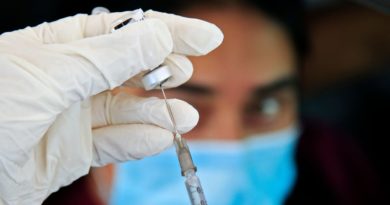$18 Billion COVID Vaccine Gold Rush Threatens Horseshoe Crabs, Ocean Ecosystem

The annual spring congregation of egg-laden horseshoe crabs on the east coast provide a vital food source for annual migrations of millions of shore birds.
The $18 billion gold rush for liability free COVID vaccines now threatens that ancient Atlantic coast ritual. COVID vaccine makers plot to harvest tens of thousands of these primitive and beloved sea creatures. The horseshoe crab’s blue blood is the only known natural source of limulus amebocyte lysate, a substance that detects and eliminates a potentially deadly vaccine contaminant called endotoxin.
Every year, pharmaceutical companies corral half a million Atlantic horseshoe crabs, bleed them, and return them to the ocean — after which many will die. This practice, combined with overharvesting of the crabs for fishing bait, has caused a precipitous decline in the species.
In 1990, biologists estimated 1.24 million crabs spawned in Delaware Bay, a main egg-laying nursery grounds and prime collection point for the companies. By 2019, that number had dropped to 335,211. Conservation groups feel that the planned harvest by vaccine manufacturers may lead to the species’ extinction.
Starting in July, Swiss-based Lonza will begin manufacturing a COVID-19 vaccine for human clinical trials. The company will use lysate in the vaccine it plans to sell it in the U.S.
The horseshoe crab is already on the brink of extinction. Conservationists fear that the demand for horseshoe crab blood for COVID-19 vaccines may exterminate the crabs and destroy the shore birds and the marine ecosystem that depend on them.
Conservationists observe that the harvesting of wild animals like sharks and horseshoe crabs for exploding vaccine manufacturing is unsustainable.
*** This article has been archived for your research. The original version from Global Research can be found here ***


